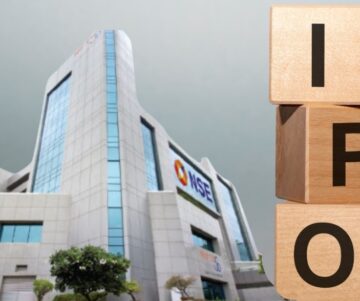
Tax-free bonds vs Capital Gains Bonds
admin | September 28, 2022 | 0 | FinanceA bond is a fixed income instrument similar to a loan made by an investor. The bond between the investor and the borrower includes loan details. They are used mainly by states, sovereign governments, companies and municipal corporations to finance projects. Bond details also include the last date of the principal amount to be paid.
What are Tax-Free Bonds?
Tax-free bonds are an income received by an investor at regular intervals or interest that is completely tax-free. Tax-free bonds are issued by an institution, supported by the government, which makes the default risk zero. These types of bonds have a lock-in period of more than 10-20 years thus investors must invest in tax-free bonds only if they can keep funds locked in for a long time. HNI institutions find tax-free bonds attractive because there is no upper-limit investment. Under the Income Tax Act, the main advantage of these bonds is that the interest generated is entirely exempted by the investor.
Two things to remember about Tax-Free Bonds:
Tax-free bonds can be held in demat form or in physical form as a part of a regular demat account.
Tax-free interest is the only tax benefit on these tax-free bonds, and there is no other tax benefit available. Because the interest is tax-free, there is no TDS deduction on the payable interest on these bonds.
What are Capital Gain Bonds?
Issued by the IRFC, NHAI, PFC and REC Capital Gain bonds come under Section 54EC. Capital Gain Bonds have an interest rate of 5{bf4ecdcca09e34bef262cebc09248f1797759e2df3be72256c0aed3bd8a5394e} per annum, as per the individual’s tax slab. They are AAA-rated, indicating security and stability. Like Tax-free bonds, Capital Gain bonds can also be bought in physical or demat format.
Tax-free bonds vs Capital Gains Bonds
Under Section 10, you can fully exempt interest on tax-free bonds. These bonds give a fixed rate of Interest, and their rate of interest is approx 7-8{bf4ecdcca09e34bef262cebc09248f1797759e2df3be72256c0aed3bd8a5394e}. Tax-free bonds are issued by the government and thus the chances of default are low. The amount invested in these bonds is exempt and 100{bf4ecdcca09e34bef262cebc09248f1797759e2df3be72256c0aed3bd8a5394e} tax-free. The interest earned from these bonds is also exempt and investors can get interest income directly in their bank accounts. There is no TDS deducted on the interest, unlike Capital Gain Bonds.
On the other hand, on Capital Gain Bonds, the received interest is not exempted. From Capital Gains Bonds, under Section 54 EC the amount invested is claimed as an exemption. One of the major benefits of Capital Gain Bonds is not the interest earned, but Capital Gain Tax saved. Compared to Tax-free bonds, Capital Gain Bonds includes profit reduction and higher tax rate for short-term gains and double taxation.
Where can you buy Bonds?
There are a few specialised bond brokers on Angel One. The Brokers on Angel One give you access to bond markets, where you can trade. Angel One provides Government Bonds, Corporate Bonds and Tax-free bonds. Their primary role is to help the government access long-term capital.
https://www.investopedia.com/terms/b/bond.asp
https://taxguru.in/income-tax/tax-free-bonds-india.html













